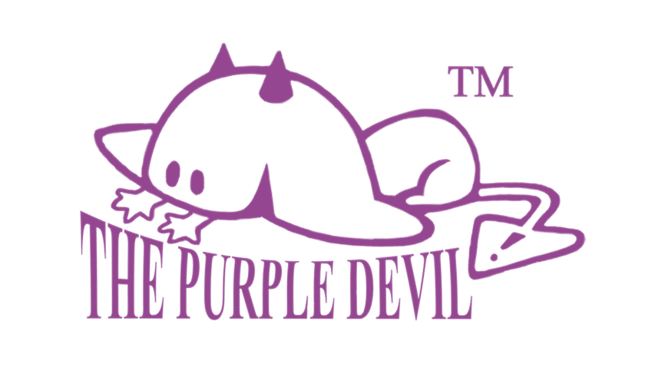- Reshaping Futures: Expert education news consult insights fuel a revolution in learning methodologies.
- The Rise of Personalized Learning
- The Impact of Technology on Curriculum Development
- Bridging the Digital Divide and Ensuring Equity
- The Future of Assessment: Beyond Standardized Tests
Reshaping Futures: Expert education news consult insights fuel a revolution in learning methodologies.
The landscape of learning is undergoing a profound transformation, driven by rapid technological advancements and evolving pedagogical approaches. Staying abreast of these changes requires a commitment to continuous professional development and informed decision-making. This is where robust education news consult services become invaluable. They offer insights into emerging trends, research-backed best practices, and the potential impact of new technologies on student outcomes. Understanding these dynamics is crucial for educators, administrators, and policymakers alike to ensure a future-ready educational system.
The Rise of Personalized Learning
Personalized learning, tailoring education to meet the individual needs of each student, has become a central focus in modern educational reform. This approach moves away from the traditional ‘one-size-fits-all’ model and embraces the diversity of learning styles, paces, and interests. It leverages data analytics and adaptive technologies to provide customized learning pathways. However, implementing personalized learning effectively requires careful planning, ongoing assessment, and a shift in teacher roles from lecturers to facilitators.
Successfully integrating personalized learning demands a deep understanding of learning sciences and a commitment to equity. It’s not simply about adopting new software; it’s about fundamentally rethinking how we teach and assess students. Effective education news consult can provide guidance on navigating the complexities of implementation, selecting appropriate technologies, and addressing potential challenges related to access and equity.
| Adaptive Learning Software | Customized pace and content, immediate feedback | Cost, digital divide, potential for algorithmic bias |
| Project-Based Learning | Develops critical thinking and problem-solving skills, fosters engagement | Requires significant teacher planning and resources |
| Competency-Based Education | Focuses on mastery, allows for flexible pacing | Assessment complexities, potential for tracking issues |
The Impact of Technology on Curriculum Development
Technology is reshaping curriculum development at an unprecedented rate. The sheer volume of digital resources available presents both opportunities and challenges for educators. New technologies, such as virtual reality (VR) and augmented reality (AR), offer immersive learning experiences that can bring abstract concepts to life. Furthermore, online platforms and open educational resources (OER) provide access to a wealth of learning materials at little to no cost.
However, integrating technology effectively requires careful curation and alignment with learning objectives. Simply using technology for technology’s sake can be counterproductive. Educators need to critically evaluate digital resources, ensuring they are accurate, accessible, and aligned with established pedagogical principles. Staying informed about emerging technologies and best practices is vital, and education news consult plays a pivotal role in this continuous learning process.
- Virtual Reality (VR) allows for immersive simulations, enhancing engagement.
- Augmented Reality (AR) overlays digital information onto the real world, providing context.
- Learning Management Systems (LMS) streamline course management and communication.
- Open Educational Resources (OER) provide free and accessible learning materials.
Bridging the Digital Divide and Ensuring Equity
While technology offers tremendous potential for enhancing education, it also exacerbates existing inequalities if not implemented equitably. The digital divide – the gap between those who have access to technology and those who do not – remains a significant barrier to educational opportunity. Students from low-income families, rural communities, and marginalized groups are disproportionately affected by lack of access to computers, internet connectivity, and digital literacy skills.
Addressing the digital divide requires a multifaceted approach, including providing affordable internet access, offering digital literacy training, and ensuring that all students have access to the necessary devices. Moreover, it’s crucial to consider cultural relevance and inclusivity in the design and implementation of educational technologies. Education news consult can help identify and address disparities in access and provide guidance on creating equitable learning environments for all students.
- Invest in infrastructure to expand internet access.
- Provide affordable devices to students and families.
- Offer digital literacy training for students, teachers, and parents.
- Develop culturally relevant and inclusive learning materials.
The Future of Assessment: Beyond Standardized Tests
Traditional, standardized tests are facing increasing scrutiny as educators seek more authentic and meaningful ways to assess student learning. These tests often fail to capture the full range of skills and knowledge that students acquire, and they can perpetuate inequities. Emerging assessment approaches, such as performance-based assessments, portfolios, and micro-credentials, offer more holistic and nuanced measures of student achievement.
Performance-based assessments require students to demonstrate their skills and knowledge by completing real-world tasks. Portfolios allow students to showcase their work over time, providing a comprehensive picture of their learning progress. Micro-credentials recognize specific skills and competencies acquired through various learning experiences. Navigating these evolving assessment landscapes necessitates expertise and guidance; therefore, investing in knowledgeable education news consult is vital for the success of these methods.
| Standardized Tests | Multiple-choice, standardized format | Easy to administer and score, comparable data | Limited scope, potential for bias |
| Performance-Based Assessments | Real-world tasks, demonstrations of skills | Authentic, assesses higher-order thinking skills | Subjective scoring, resource intensive |
| Portfolios | Collection of student work over time | Comprehensive, shows learning progress | Time-consuming to evaluate, requires clear criteria |
The future of education hinges on our ability to adapt to change, embrace innovation, and prioritize the needs of all learners. By staying informed, collaborating effectively, and investing in continuous professional development, we can create a learning environment that prepares students for success in a rapidly evolving world. This requires dedicated investment in initiatives that promote innovative educational practices and ensure equitable access to quality learning opportunities.
